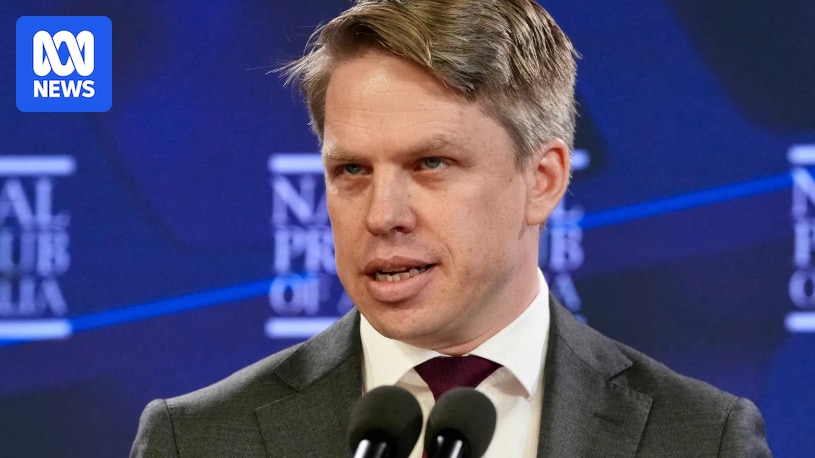Just nowWed 21 May 2025 at 3:30am
Labor will still have to ‘make case’ for reforms outside of election mandate
The ABC’s own David Speers picks up on Paul Erickson’s message that Labor should stay focused on delivering what it promised.
“Are you saying don’t go beyond that? And if Labor is going to go beyond that, how should they bring people with them?” he asks.
Erickson says if there is going to be reform beyond what it took to the election, then the government must “make the case for why it’s important”.
“That’s something I think there has been a hallmark of the government over the three years,” he says.
On Labor’s shift from tackling inflation in the first term to tackling productivity, Erickson jokes while hasn’t seen focus groups break out into detailed discussions on the issue, it’s right for the government to switch its focus.
3m agoWed 21 May 2025 at 3:26am
Primary vote matters in comparison to opponent, Erickson says
Phil Coorey from the Australian Financial Review has stepped up to ask a question about Labor’s primary vote.
Coorey has pointed out that about a decade ago, a primary vote in the mid 30s would have been considered a failure, but this time it delivered Labor a landslide victory.
He’s asked whether Paul Erickson can comment on this being a “new reality”.
Erickson says while the primary vote does matter, it only matters in comparison to your opponent.
He says the 2025 election was the first election since 1946 where Labor’s Senate primary vote was stronger than it’s vote in the House of Representatives.
Erickson believes that’s because Labor supporters voted tactically in different lower house electorates (where independents are usually present).
“So that 34.6 [ per cent Labor] primary [vote] in the House — I don’t think that it actually is an accurate reflection of the portion of the Australian population that would have cast a vote for Labor if they had to in their own electorate if that was what they needed to do to elect a Labor government,” Erickson says.
8m agoWed 21 May 2025 at 3:22am
What lessons did Labor learn from failed referendum campaign?
Paul Erickson is asked what lessons Labor learned from the failed Voice referendum and how it adapted its strategy for the election.
“We paid close attention to what had happened online during the referendum and did quite a bit of work following it to
understand how the ‘no’ campaign organised their digital campaigning,” he says.
He says Labor brought in people to help it understand and put together a “road map” about how to make sure the party “ran the strongest possible digital campaign” during the election.
“But the starting point really for us was what we did in 2022 rather than anything that rose out of the referendum. It was about evaluating what had worked and what the lessons were for us rather than starting from scratch,” he said.
Asked if Labor’s use of influencers was an “underrated weapon”, Erickson says the party took the view it needed to engage with traditional and new media.
“We made the effort to be everywhere because, in that fragmented media environment, you can’t pass up any opportunity to try to connect with people and get your message across,” he says.
10m agoWed 21 May 2025 at 3:20am
‘Stay grounded’: ALP campaign chief’s message to Labor MPs in wake of Coalition split
Paul Erickson has urged Labor MPs to “stay very grounded and focused” on delivering rather than get caught up in the “drama” of the other political parties in the wake of the Liberal-National split.
“For the government, we need to stay very grounded and focused on delivering the agenda that we were elected on,” he says.
“And I think that’s where the focus has been over the first few weeks and that’s where it needs to remain.
“There’ll be all sorts of
drama and events in other parties around the parliament but we need to stay focused on delivering the agenda we ran on and I’m confident that’s where the party’s focus will be.”
12m agoWed 21 May 2025 at 3:17am
Erickson says national campaign needs to have a ‘consistent strategy’
Anthony Galloway from Capital Brief has stepped up ask a question about the Liberal Party’s outer suburbs campaign.
He’s asked if the Liberal’s strategy caused a failure to foresee big swings against the Coalition in seats closer to cities.
Paul Erickson says Labor experienced a swing towards them on a two-party preferred basis, and established a strong lead by the end of the first week of the campaign.
He says cost of living was the number one issue across the board in outer suburban, inner city and regional areas.
Pressed on whether it was a mistake for the Coalition to run a national campaign too focused in an outer suburban seats, Erickson says there’s no safe seat anymore.
“You need to run a campaign that has a consistent strategy and theme and message that everything gets back to but meets people where they are in every community around the country,” Erickson says.
19m agoWed 21 May 2025 at 3:10am
Will Labor be able to run another Mediscare campaign?
The next question is from Tess Ikonomou from AAP about Labor’s campaign on Medicare.
She’s asked Erickson whether Labor will be able to run another Mediscare campaign targeting the opposition if they can’t increase bulk billing rates.
Paul Erickson says Labor has an “ambitious reform agenda” for Medicare, and that Peter Dutton’s record “speaks for itself”.
“Throughout the last parliament, they said that Medicare was wasteful and Medicare clinics were wasteful … Their record speaks for itself and if they continue to oppose our efforts to deliver and grow universal health care, we’ll continue to point that out and point to the risks they represent,” Erickson says.
19m agoWed 21 May 2025 at 3:10am
Does the supersized majority mean Labor can afford to be more ambitious?
Paul Erickson is asked whether Labor can afford to be more ambitious with reforms now it has a supersized majority in the lower house.
The ALP chief says he thinks the party already had “a lot of ambition” baked into its election promises.
“I think that the best approach is for Labor to stay focused on the agenda that we campaigned on and that we sought a mandate for and we sought to deliver and I think that’s what will drive the government’s work and
the legislative agenda in the parliament over the next three years,” he says.
23m agoWed 21 May 2025 at 3:07am
How Labor went from underestimating the Greens to picking them off
Paul Erickson has turned his focus to the Greens. He says one of the “sorer points” of the 2022 election result was Labor “underestimated the threat of the Greens” in Queensland.
“The Coalition’s blocking strategy meant we had to grapple with the challenge of a Greens political party that was equally committed to frustrating progress,” he says.
“Whether it was ideological fervour or their weird internals is beyond me, but their own actions meant that perceptions of the Greens were defined by their blocking tactics and aggressive attacks on Labor.
“Until late in the piece they seemed confident of a dividend from this behaviour.”
Erickson says the ALP resourced a “dedicated effort” to confront the challenge posed by the Greens, which were predicting it was a “strong chance” in “Moreton, Richmond, Wills, Macnamara, Perth and Sturt”.
He says the success of that work of that team can be summed up by former Greens leader Adam Bandt himself. Bandt told reporters in his final press conference that Labor ran a “very good campaign” that led to Greens voters telling him they didn’t vote for the minor party because of the risk of Peter Dutton.
26m agoWed 21 May 2025 at 3:04am
Coalition campaign asking voters to look back on the last three years was ‘weak’, Erickson says
Paul Erickson says the Coalition’s campaign, which asked Australians if they were better off than they were three years ago, was “weak territory” for the opposition.
He says it reminded voters of the Morrison government and Peter Dutton’s track record, which he says harmed their campaign.
Erickson says Labor polling showed Dutton was more unpopular than former prime minister Scott Morrison.
“Most voters — particularly young people who had felt the pressure of inflation more than most — were more concerned about who would make them better off over the next three years,” Erickson says.
“This was much stronger ground for Labor, and our research program was dedicated to unlocking that potential.”
Erickson says Labor is confident this is the first election since 1966 where the incumbent party didn’t lose a seat.
Dutton’s ‘strange’ campaign helped turn the tide
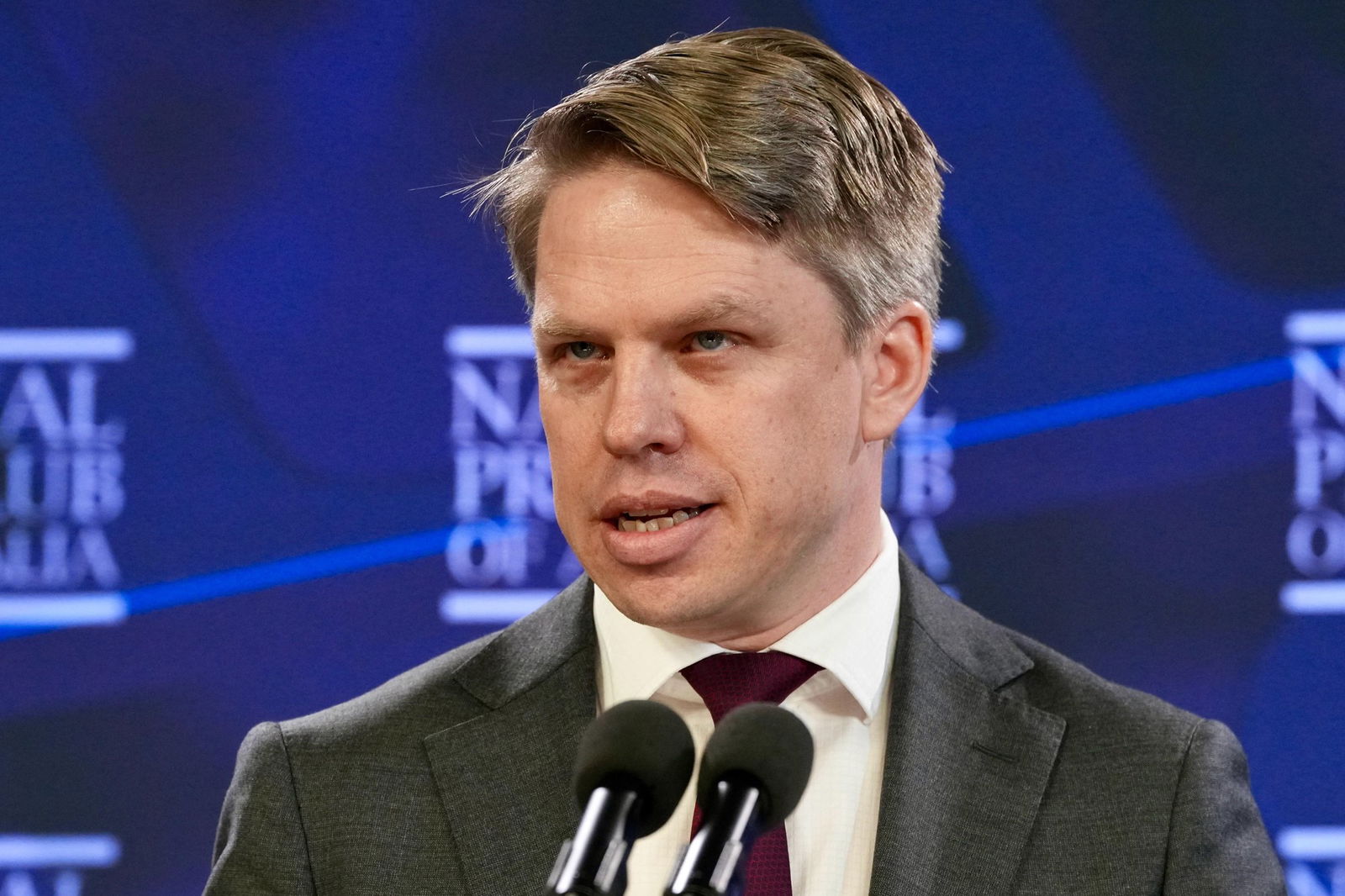 (ABC News: David Sciasci)
(ABC News: David Sciasci)
Paul Erickson says Peter Dutton’s “strange” campaign only elevated the risks voters associated with him.
“Was he focused on Australians who were looking for the party with the best plan to make them better off over the next three years?” he asked.
“Or was his priority winning over voters who were looking for an Australian variation on MAGA?”
The ALP campaign director says the party’s internal tracking poll found that by the closing week of the campaign voters believed that Labor’s campaign was focused on issues that mattered to them, and the Coalition made more promises they couldn’t afford.
“These results are the ultimate indictment of the Coalition’s closing focus on culture wars instead of the cost of living,” he said.
“They also – and we acknowledge this – represented a significant turnaround compared to expectations at the beginning of the year.”
33m agoWed 21 May 2025 at 2:56am
Erickson says Dutton’s ‘aggression and intolerance’ didn’t help Coalition
Paul Erickson says Peter Dutton’s “aggression and intolerance” unsettled the Australian people.
They were most pronounced in some areas, according to Erickson: Dutton’s record as health minister, his opposition to Labor’s income tax cuts, cheaper childcare and energy bill relief, and nuclear energy proposal, concerned some Australians.
“His recklessness concerned them and made them worry about what kind of Prime Minister he would be,” Erickson says.
“And above all his hard-headedness, his lack of empathy and his lack of understanding of ordinary people’s lives kept coming to the fore,” he says.
38m agoWed 21 May 2025 at 2:52am
Five ‘critical’ areas Labor focussed on during election campaign
Paul Erickson has named the five critical factors that helped Labor win.
1.The Building Australia’s Future campaign: Pointing to Labor’s second term ambitions “in every electorate, in every portfolio”. 2.Putting Medicare at the heart of the campaign from three months out from polling day.3.Focusing on Labor’s handling of the economy and bringing inflation down. 4.Anthony Albanese’s personal performance (he joked that an earlier version of his speech said the PM didn’t put a foot wrong, but the stage he fell off might have a different idea)5.Peter Dutton (more on that shortly from my co-blogger Josh).
43m agoWed 21 May 2025 at 2:47am
Coalition operated in an ‘echo chamber’, Erickson says
Labor’s strategy over the last three years was to provide cost of living relief, weather global inflation and kickstart the shift to renewable energy, Paul Erickson says.
On the contrast, Erickson says Peter Dutton and the Coalition had three “prongs” to their election campaign: maintain Coalition unity at all costs, oppose everything proposed by Labor and trade in their middle class supporters for outer-suburban and rural communities.
Erickson says the Coalition operated in an “echo chamber” that didn’t address key issues affecting Australians.
“They are more concerned with the prejudices of their hard-core supporters than the experiences of working people,” Erickson says.
“They have imbibed a mistaken analysis of how Tony Abbott won in 2013, overlooking the role played by division within Labor in the demise of the last Labor government.
“And on the transition to renewables, they remain fatally committed to denial and delay.”
46m agoWed 21 May 2025 at 2:43am
Record on cost of living, renewables and groundwork for future reforms key to win
Erickson says to understand why Labor won, you have to look back at the single issue that dominated the entire term of parliament: the cost of living.
“It is impossible for any government to completely satisfy the demand for cost-of-living relief during an inflation surge,” he says.
“Governments as ideologically diverse as the Biden-Harris administration, the UK Conservatives, the Japanese LDP, the Indian BJP and the Portuguese Socialists went backwards at elections during 2024.”
But he said the measures Labor put forward all had one thing in common: Peter Dutton and the Coalition opposed them.
“Over three years, Labor’s record and Peter Dutton’s opposition built up an advantage for Labor as the best party to provide cost-of-living relief,” he says.
He also credited Labor’s handling of the economy and embracing of renewable energy as reasons for the victory.
Lastly, Erickson says the government successfully used its first term to lay the groundwork for long-term reforms in Medicare, housing and TAFE.
“In response to this agenda, the Coalition wanted to have it both ways – to claim they would have done a better job, but to hide the detail of their alternative plans,” he says.
51m agoWed 21 May 2025 at 2:39am
Labor faced an uphill battle last election, Erickson says
Paul Erickson says Labor faced an “uphill battle” to stay in power, with global events not favouring incumbent governments ahead the election.
“The opposition embraced this consensus – they were more focused on claiming front-runner status than explaining what they would do if they won,” Erickson says.
Erickson says the Coalition assumed the anti-incumbent wave would keep rolling into 2025 and end the Albanese Labor government.
However, he says the electorate appreciated the Labor steered the nation through “a very tough period”.
Two arguments that delivered Labor’s election success
ALP national secretary and campaign director Paul Erickson has kicked off his address to the National Press Club.
He credits Labor’s election success to “two simple arguments” Labor put forward.
“Anthony Albanese was the only leader with a plan to make Australians better off over the next three years,” he says.
“And in uncertain times Peter Dutton was not a risk worth taking.”
59m agoWed 21 May 2025 at 2:31am
PM Anthony Albanese attends National Press Club address
Prime Minister Anthony Albanese is at the National Press Club to watch Erickson’s speech, fresh from his overseas trip to Jakarta and Rome.
He’s joined by several Labor ministers including Katy Gallagher, Tony Burke, Michelle Rowland and Tim Ayres.
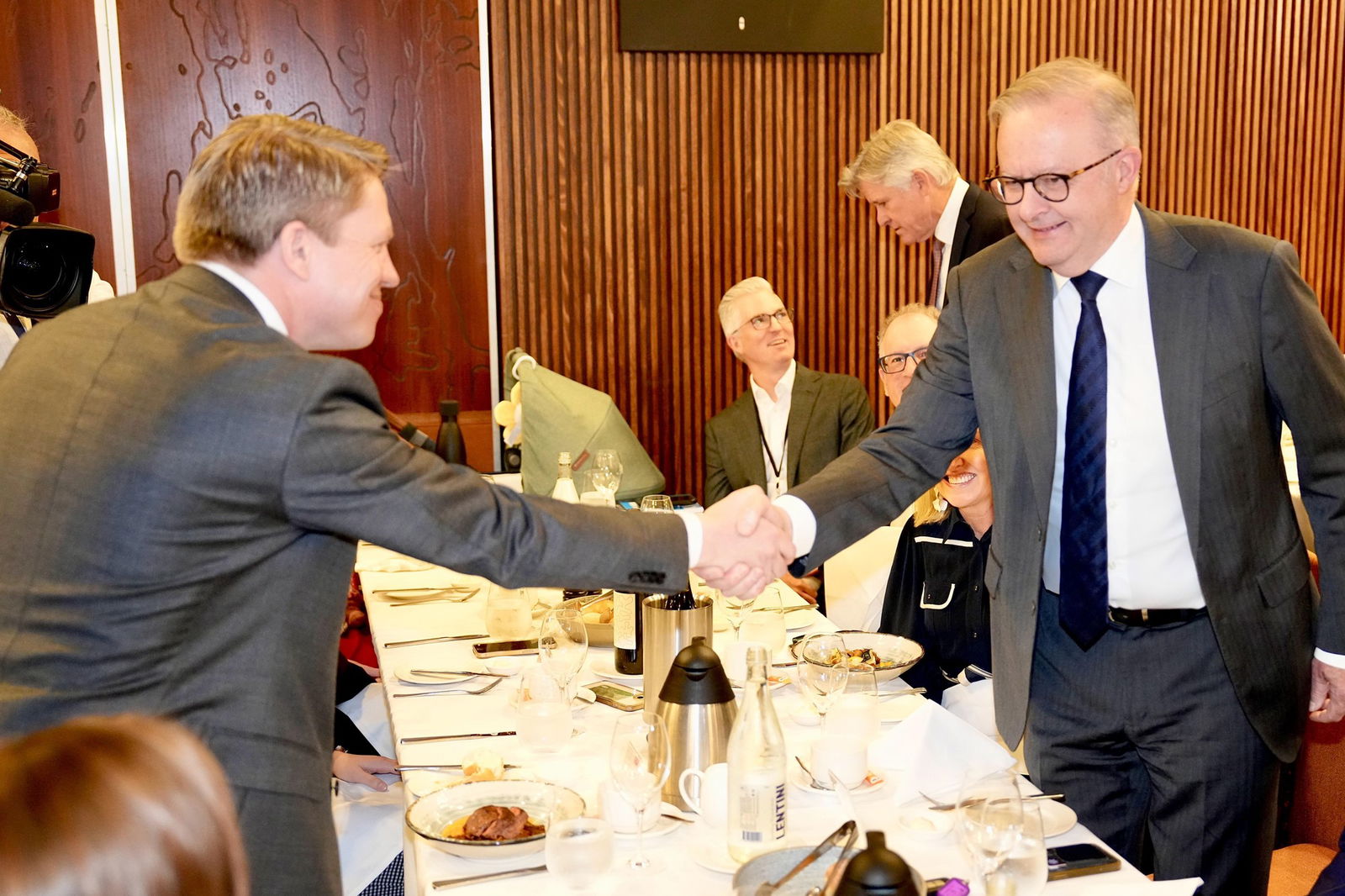 (ABC News: David Sciasci)
(ABC News: David Sciasci)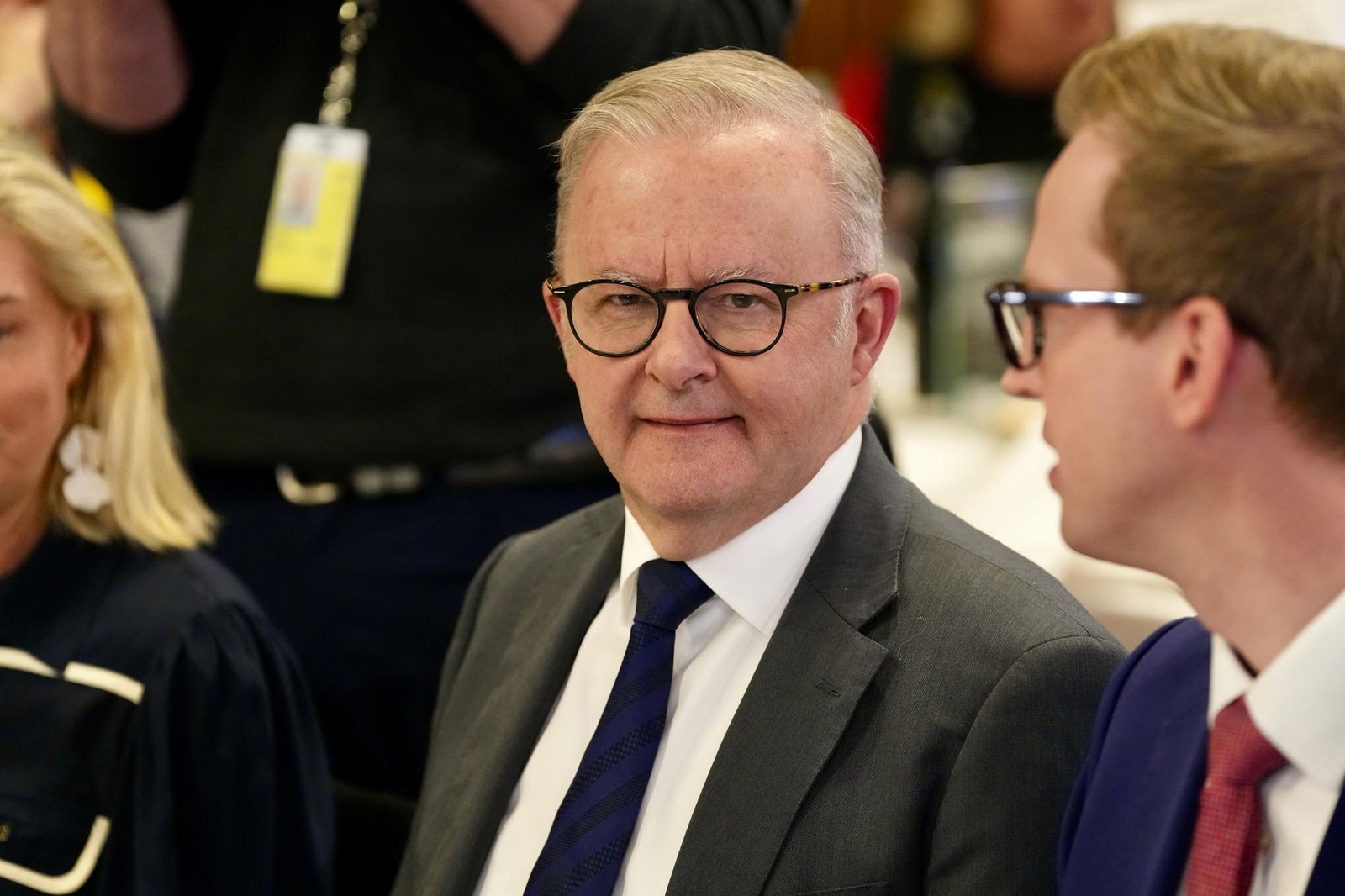 (ABC News: David Sciasci)
(ABC News: David Sciasci)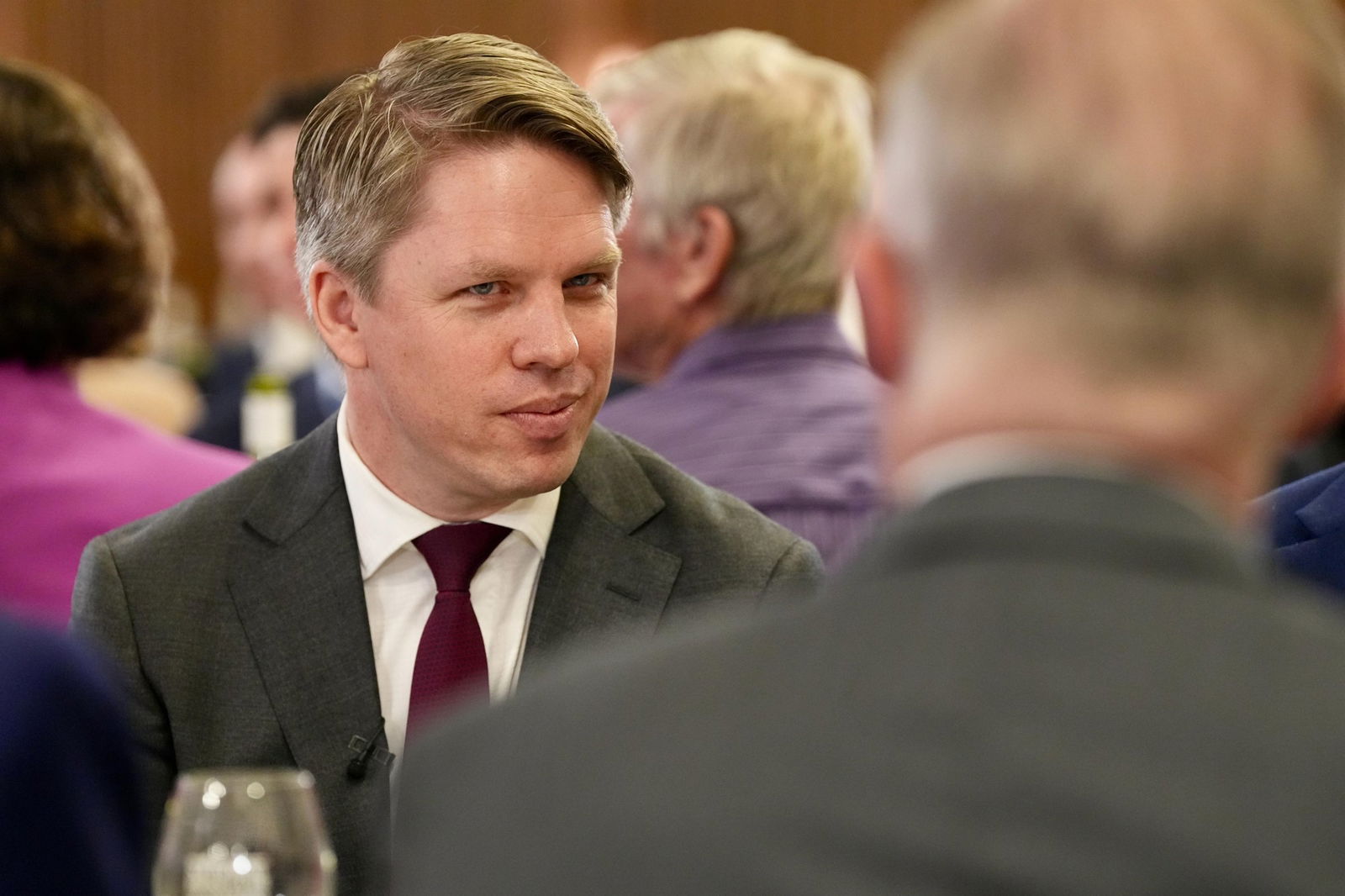 (ABC News: David Sciasci)
(ABC News: David Sciasci)
1h agoWed 21 May 2025 at 2:22am
We’re switching things up now
We’ve spent much of the morning focused on the Coalition split but we’re now going to head to the National Press Club where the ALP’s election chief Paul Erickson will be giving a speech on how Labor won the election.
So stick around. We’ll bring you all the updates from his speech and questions from reporters afterwards.
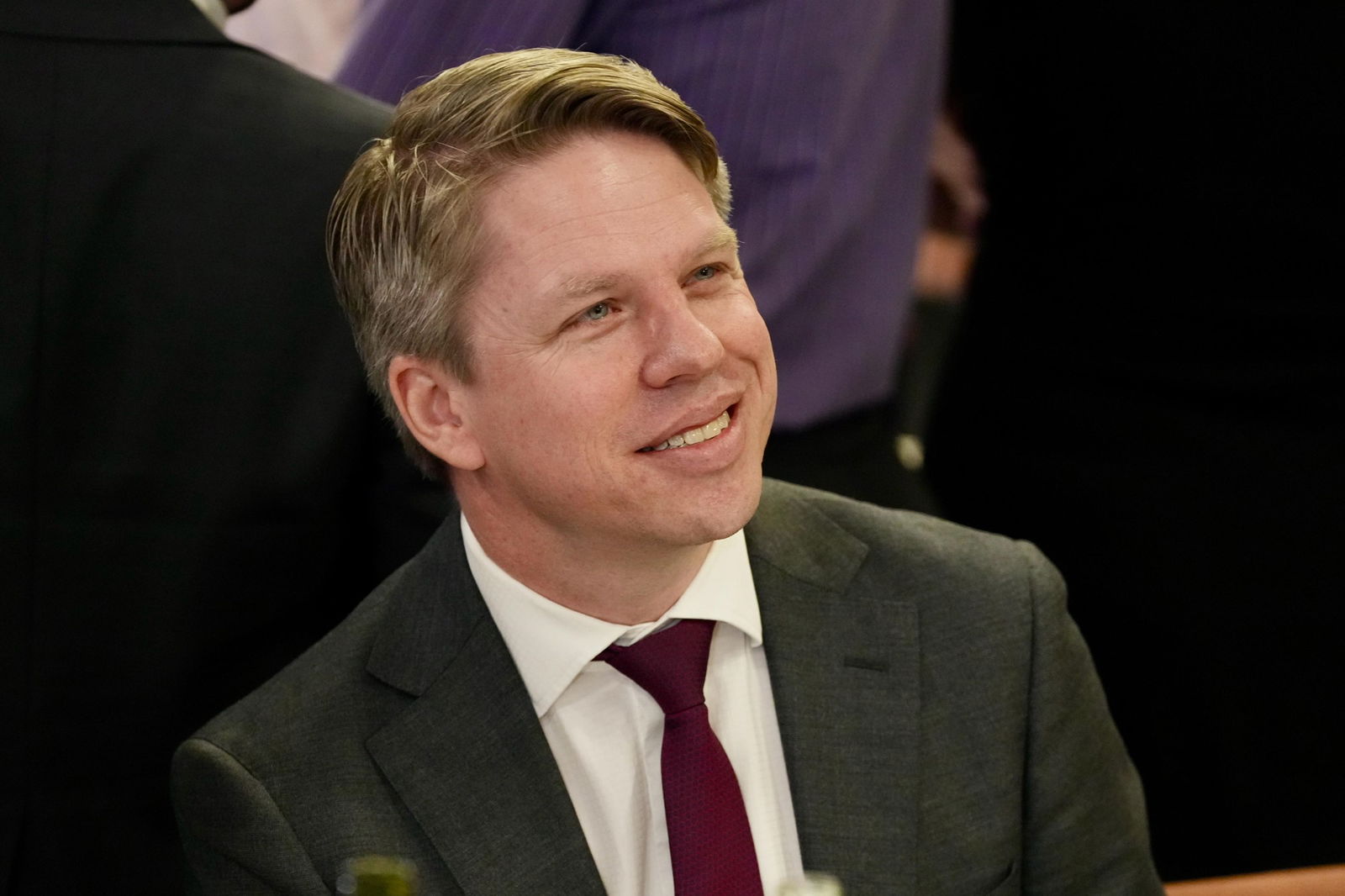 ( ABC News: David Sciasci)
( ABC News: David Sciasci)
1h agoWed 21 May 2025 at 1:46am
New environment minister to make decision on Woodside by end of month
Environment Minister Murray Watt is adamant he’ll have a decision on the proposed extension of Woodside’s north-west shelf project by the end of this month.
The global energy giant wants to continue pulling gas from undersea reserves until 2070, but faces opposition from environmental groups as well as Indigenous groups concerned about nearby ancient rock art.
Woodside’s plans have been given conditional approval from the WA government, but Watt’s predecessor Tanya Plibersek twice delayed a decision, setting a new deadline for May 31.
Watt has told ABC Radio Perth he intends to meet that date.
“My department has now finalised a brief to me with a recommendation that I’ll be going through in the next few days,” he said.
“It’s obviously a really complex project and a really complex decision and it’s not one I’m going to make in the space of 20 minutes. So I’m going to be giving that some thought in coming days.”
Nationals deputy leader says Coalition split not unanimous
Nationals deputy leader Kevin Hogan says the decision to split from the Coalition was not unanimous in his party room.
Party leader David Littleproud wouldn’t say whether the decision was unanimous when questioned on ABC Radio National Breakfast earlier.
But Hogan later confirmed on Sky News that it wasn’t.
“It wasn’t unanimous but it was quite conclusive,” Hogan says.
“I didn’t make this decision. David Littleproud didn’t make this decision. Bridget McKenzie didn’t make this decision. The Nationals federal party room made this decision and that was their direction to us,” he says.
The deputy leader says both parties should be working overtime to get back together, but admits his party isn’t prepared to walk away from some key policies, including supermarket divestiture.
